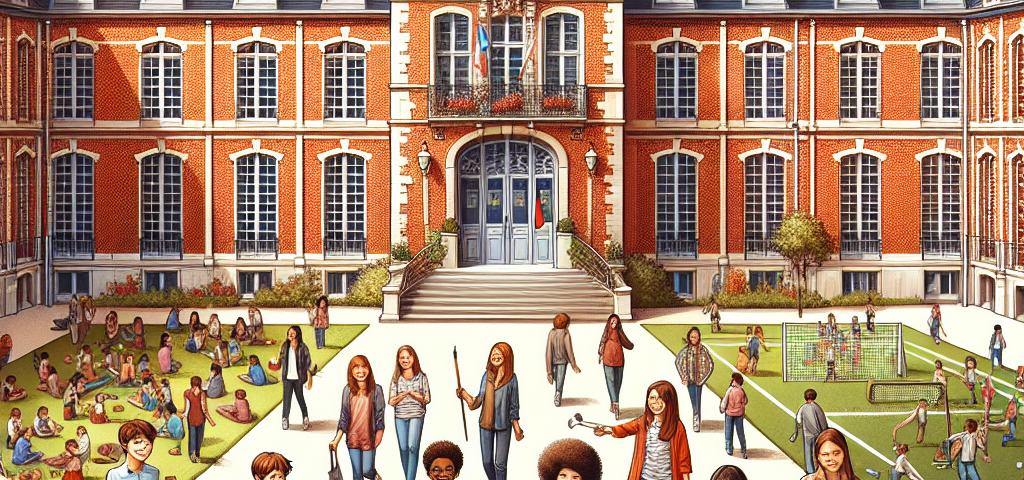
French for Little Learners: Engaging Activities to Spark Language Love
May 31, 2025
Language Learning in French Secondary Schools: Best Practices and Challenges
May 31, 2025Extracurricular Activities: Enhancing the French Secondary School Experience
Extracurricular activities play a pivotal role in shaping the educational experience of students around the globe. In France, where the educational system is often characterized by its rigorous academic framework, these activities add a vital layer of development beyond the classroom. This article explores how extracurricular activities enhance the French secondary school experience, fostering personal growth, social skills, and overall well-being.
A Holistic Approach to Education
French secondary schools, or lycées, traditionally focus on a structured curriculum, primarily emphasizing academic subjects. However, the inclusion of extracurricular activities presents a holistic approach to education, encouraging students to explore diverse interests. From sports teams to music clubs, debate societies, and art classes, these activities offer opportunities for self-discovery and personal expression.
By engaging in various pursuits, students can cultivate their passions while developing skills that are crucial for their future careers and lives. For instance, participation in sports not only promotes physical well-being but also teaches teamwork, leadership, and time management. Similarly, artistic activities enhance creativity and can often lead to increased cultural awareness.
Building Social Skills and Community
Extracurricular activities serve as a microcosm of society, where students interact with peers from different backgrounds and cultures. In France, where diversity is increasingly prevalent, these interactions are essential for fostering tolerance and understanding. Students learn to communicate effectively, resolve conflicts, and collaborate emotionally—skills that are invaluable in today’s interconnected world.
Moreover, extracurriculars often help to build a sense of community within the school. Events such as school plays, sports competitions, and art exhibitions bring together students, teachers, and parents. These communal activities foster school spirit and create lasting memories, reinforcing a sense of belonging and identity among students.
Enhancing Academic Performance
Contrary to the belief that extracurricular activities distract from academics, numerous studies have shown that involvement in these activities can actually enhance students’ academic performance. Engaging in sports, for example, can improve concentration and discipline, while participating in debate or other intellectual clubs encourages critical thinking.
In the French educational context, balancing study with extracurricular commitments can teach students valuable time-management skills. This balance often translates into improved academic outcomes, as students become adept at organizing their responsibilities.
The Role of Teachers and Mentors
Teachers play a significant role in the success of extracurricular programs. They act not only as educators but also as mentors and facilitators, guiding students in their pursuits outside the traditional academic setting. By participating in or supporting these activities, teachers can cultivate stronger relationships with their students, fostering an environment of trust and support.
In some cases, these relationships extend beyond the classroom, enabling teachers to play a crucial role in a student’s personal development. This mentorship can be particularly impactful in a secondary school setting, where students are navigating complex social and academic challenges.
Challenges and Considerations
While the benefits of extracurricular activities are clear, there are challenges that schools must navigate. Ensuring equitable access to resources, managing time constraints, and catering to the diverse interests of a student body can be complex. It is imperative for schools to strive for inclusivity, providing opportunities for all students, regardless of their socioeconomic backgrounds.
Additionally, there can be pressures associated with performance in extracurricular activities, contributing to stress and anxiety. Educators and parents must encourage a balanced approach, emphasizing the importance of participation and enjoyment over competition.
Conclusion
In conclusion, extracurricular activities are invaluable to the French secondary school experience. They promote a well-rounded education, encouraging students to explore their interests, develop social skills, and enhance their academic performance. The collaborative efforts of educators, students, and the community create an enriching environment that benefits everyone involved. By prioritizing and expanding extracurricular offerings, French schools can continue to nurture the leaders and innovators of tomorrow, fostering personal growth that will resonate well beyond the classroom.

